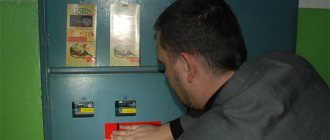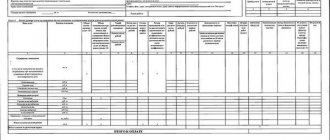Acceptable periods for late payment for an apartment
The obligation of residents to pay for utilities and the rules for their payment are defined in Art. 153 and 155. The basis is receipts sent to the consumer by service providers.
The payer has time to settle the issued receipt. Whether it is possible to delay the payment of funds for consumed services and for how long is established by law. They provide for a deadline for payment for consumed housing and communal services resources as the 31st day of the month in which the receipt was delivered to the payer.
Other options are specified in the agreement between the service consumer and the management company.
From the 31st to the 90th day of debt, a penalty is charged on the amount of the debt in the amount of 1/1300 of the refinancing rate, after 90 it will be 1/130. After the three-month period, people who refuse to pay utility bills receive the status of debtors.
Find out more about how much you can avoid paying for an apartment before the Criminal Code goes to court.
Reasons for paying utility bills
The provision of public services and their payment by citizen-consumers is regulated by the following legal acts :
- Decree of the Government of the Russian Federation No. 354 “Rules for the provision of utility services”;
- Housing Code of the Russian Federation , and specifically, Section VII and Articles 153, 155 and 157.
It is in the relevant articles of the Housing Code of the Russian Federation that the obligation of subscribers to pay for housing and communal services is approved, and also regulates the amount of penalties for late payment.
"Rules for the provision of public services":
- the rights and obligations are clarified (section V);
- the procedure for disconnecting services to a subscriber in case of late payment is regulated
- specific tariffs for utility services are established.
Here you will learn all the ways you can pay for housing and communal services.
What are the consequences of debts on utility bills?
Failure to pay bills for housing and communal services threatens debtors with various troubles. Many of them are defined
Recent changes to the document tighten penalties for evading their repayment. In addition to the accrual of progressive fines and penalties, the defaulter will face a restriction in the supply of resources, and then their complete shutdown.
These measures are preceded by written notifications of the possibility of applying such sanctions.
Sometimes management companies (MCs) use such illegal measures as posting lists of debtors on entrance doors, publishing them in the media, or not issuing certificates of family composition to debtors. You may be faced with the impossibility of registering/checking out of your living space if you have debts for housing and communal services.
Bailiffs may apply other measures of influence: a ban on traveling abroad or restrictions on the right to drive vehicles.
Find out in more detail what the consequences of debt on utility bills may be.
The legislative framework
The main role in regulating the issue of payment for consumed housing and communal services is played by the Housing Code of the Russian Federation and Government Resolution No. 354, which approved the Rules for the provision of housing and communal services to citizens. The latter, as a coercive measure, provides for the right of the supplier to suspend/limit the provision of services after sending a corresponding notice to the debtor 30 days before the application of sanctions.
Consumers are often concerned about the legality of such actions. For example, they ask whether it is legal to turn off hot water in an apartment building for debt. The same Rules establish a list of resources, the supply of which is prohibited from being suspended due to sanitary standards:
- gas used for heating;
- cold water;
- heating.
A premises that is deprived of the listed services automatically becomes unfit for habitation, which is a direct violation of the Housing Code of the Russian Federation.
The lack of hot water does not make the room unsuitable for habitation. Consequently, turning off hot water for non-payment in a separate apartment is a very real measure that can be applied to a persistent defaulter.
In addition to hot water, utility companies have the right to turn off other services provided for in the contract.
Rules for suspension or restriction
If there are grounds, the person’s access to the resource is suspended. For a procedure to be legal, a certain order must be followed.
Disconnection Notice
If the amount of the consumer's debt exceeds the two-month standard payment, the supplier has the right to notify him. The document contains information that if the debt amount is not paid within 20 days from the date of delivery of the warning, restrictions and suspension of the service will follow. The notice can be delivered to the debtor personally against signature, sent by registered mail, or included in the next payment receipt.
IMPORTANT! The debtor can be notified by phone call or message via Internet resources. That is, in any way that can be used to confirm that he knew about the upcoming procedure.
20 days after notification, a restriction is introduced, and after another 10 days the service is suspended.
IMPORTANT! The exception is heating and cold water supply - they do not have the right to turn them off under any circumstances.
The rules approved by Decree of the Government of the Russian Federation dated May 6, 2011 N 354 indicate that it is possible to suspend or limit the provision of services after a preliminary notification has been sent to the debtor. But in the same document there is a direct ban on turning off cold water and heating - paragraph 307 of the Decree of the Government of the Russian Federation.
The supply of resources is resumed two days after payment of the debt.
How it's done
Restrictions and shutdowns are carried out by employees of the resource supply organization. In this case, an act is drawn up containing information:
- date of procedure;
- Full name, address of the debtor;
- how it is produced;
- information about the meter (its number, current readings);
- grounds for restriction or deactivation;
- limitation period.
The act must be drawn up in 3 copies, one of which is handed over to the debtor.
A shutdown in an apartment building should not affect the resource supply to apartments of bona fide payers.
What is the basis for turning off the supply of resources?
Of course, the suspension of the provision of a service does not occur the very next day after the tenant is overdue for payment for its consumption. Disconnection from services for debts to housing and communal services in 2021 is an extreme measure, which is preceded by a number of preventive measures aimed at forcing the debtor to pay the resource supplier.
And only when all methods of influence have proven unsuccessful, the consumer is disconnected from the service. The reasons for this are:
- non-payment within three months;
- partial payment for the same time after notification from the supplier was received;
- violation of the debt repayment agreement concluded between the supplier and the debtor.
Is it legal to turn off the lights without a court order?
If the consumer has not paid for the electricity provided for two months, the management company has the right to send a warning to the debtor. If payment is not received, the company can suspend the supply of electricity without a court order. But this should be done only in compliance with all the necessary requirements of the law, otherwise the actions of the Criminal Code may be challenged in court.
The reason for going to court can only be a violation of the power outage procedure, namely, failure to comply with all the stages provided for by the established Rules, but not the fact of the outage itself.
So, if, in compliance with the procedure, company representatives turned off the electricity for debts, whether there are minors in the apartment or not, no longer matters. The actions of the Criminal Code are not grounds for going to court.
A power outage is considered legal if the following conditions are met:
- the debt period is equal to or exceeds 3 months, if payments correspond to average monthly consumption standards;
- the utility service provider notified the violator of the existence of the debt in writing, personally delivered, as well as in other ways to confirm the fact of receipt of the notification;
- the debtor is given 20 days from the date of receipt of the notification, during which he can repay the debt at least partially;
- after the allotted period has passed and the resident makes no attempts to pay the bills, he is sent a second warning, which contains information that the electricity will be turned off in 3 days.
The same applies to the question of whether the management company has the right to turn off water for debts. If the water is hot, then the management company can do this following the same steps.
Disconnection warning procedure
But in fact, housing and communal services officials cannot simply turn off gas, water or electricity after three months of non-payment.
There is a certain shutdown procedure that they are required to follow.
Actually, shutdown is preceded by several warnings.
As soon as the debt amount exceeds three months, the first warning is sent to the debtor.
For now, this is her polite request to repay the resulting debt, as well as an indication that if the apartment owner refuses to fulfill his obligations, the service provider has the right to stop providing them.
As a rule, most debtors ignore such warnings.
And completely in vain. From the moment of receipt of such notification, the month given to repay the debt begins to count.
If after its expiration the account of the supplier company is still clear, the debtor is notified again.
The request stated in the notice is still polite, but already very persistent.
And the period for implementing the warning is already significantly shorter - three days.
If the debtor does not listen, then after the agreed time he will find that his electricity or gas has been turned off.
Equipment in the apartment or outside it is not just turned off, but, most often, sealed.
This is done so that the owner cannot restore the service himself.
This will be considered an illegal connection to networks and will be punishable by an administrative fine.
back to menu ↑
How utilities are disconnected for non-payment
Art. 118 of the above-mentioned Resolution No. 354 determines the right of HOAs, management companies, housing cooperatives and other representatives of the executive bodies of a particular building to limit or completely suspend the supply of a resource.
The procedure is the same for all types of services provided. The way water is turned off for non-payment in one apartment is practically no different from the procedure for cutting off the supply of gas for cooking. The algorithm includes:
- Serving the debtor with written notice of the intention to limit or suspend the provision of any service/services.
- Waiting for the tenant to repay the debt within the statutory period of 20 days.
- If payment is not received, the utility service is limited, then completely blocked.
The procedure for disconnecting debtors for additional housing and communal services, the list and the fact of the need for their provision must be approved at a general meeting and recorded in the agreement between the residents and the management company.
To whom can the provision of housing and communal services be suspended, and to whom can they be counted?
Basic housing and communal services are provided to citizens of Belarus on an ongoing basis, and even if there is no agreement with the organization providing them, these services cannot be refused. Meanwhile, the legislation provides for cases in which some of the services can be suspended or recalculated if you do not use these services. The communal literacy portal has summarized the most popular questions from readers, and the answers to them are below.
IN WHAT CASES CAN HOUSING SERVICE PROVISIONS BE SUSPENDED?
This is most often due to the long-term absence of citizens from their main place of residence, for example due to moving to work in another country or to the country in the summer. The “Regulations on the procedure for recalculating fees for certain types of utility services and suspending (resuming) the provision of utility services” states that garbage collection; electricity consumed to operate the elevator; gas supply; water supply and sewerage in the absence of water and gas meters are not paid if the citizen left for 10 days or more for certain reasons and previously notified the organization that charges for utilities about the timing of departure. Therefore, it is necessary to contact the settlement and reference center at your place of residence (residents of the Frunzensky district of Minsk - to any distribution center in the district) and write a statement indicating the dates and reason for absence from a specific address.
Upon returning home, within seven days (this is important!), you must again visit your RSC and provide documents confirming your absence. In particular, in case of traveling abroad, it is necessary to provide personalized travel tickets or identity documents with a mark on exit and entry, or other supporting documents, for example, a copy of an employment contract, a certificate from a foreign medical institution, translated into Russian or Belarusian and certified by a notary .
IF THESE SERVICES ARE SUSPENDED, MAYBE YOU JUST NOT PAY FOR THEM FOR A SOME TIME?
Suspension of the provision of housing and communal services is an administrative procedure, the implementation of which is carried out in accordance with the requirements prescribed by law. The RSC, being unaware that the citizen has left and does not use certain services, will continue to carry out accruals. And if you just stop paying, then a debt will form, which will add penalties on top.
WHAT IF YOU FORGOT OR DID NOT HAVE TIME TO VISIT THE RSC BEFORE LEAVING?
In this situation, fees for the provision of housing and communal services will be charged and must be paid, but upon returning home you can recalculate. An application is written to the RSC and relevant documents are provided confirming absence from the place of residence.
WHAT GROUNDS FOR SUSPENSION OF PUBLIC SERVICES ARE PROVIDED BY LAW AND WHAT SUPPORTING DOCUMENTS SHOULD BE PROVIDED TO THE RSC?
The list of grounds and necessary documents for recalculating fees for utility services was approved by Resolution of the Council of Ministers of the Republic of Belarus dated December 16, 2005 No. 1466 “On approval of the Regulations on the procedure for recalculating fees for certain types of utility services and suspension (resumption) of the provision of utility services.” This:
- stay abroad. A passport or other document with marks of border crossing or registration at the place of residence abroad is presented. As well as any documents confirming your stay abroad - an employment contract, registration as a taxpayer, etc. in Russian or Belarusian, duly certified, personalized travel tickets;
— travel for health improvement and sanatorium-resort treatment. A certificate from sanatorium-resort and other health organizations is provided;
- treatment in a hospital (maternity hospital, hospital, labor treatment center, etc.). A certificate of stay in hospital treatment is provided;
- stay in places of pre-trial detention and imprisonment. A certificate from the place of detention is presented;
- completion of military service or service in the military reserve or special training. A certificate from the military unit about the place of service and position held;
— travel to the countryside (including to summer cottages), to study, on a business trip. A certificate from a village or township executive committee, a horticultural cooperative (partnership), an educational institution, or a place of work must be submitted;
— travel to the countryside to work in agriculture and the social sphere of the village by prior agreement with agricultural organizations and rural Councils of Deputies. A certificate from the place of work must be submitted;
- accommodation under lease agreements for residential premises of a private housing stock, sublease of residential premises of a state housing stock. A certificate is provided for the recalculation of fees for certain types of utility services, issued by the organization that charges fees for utility services at the place of actual residence;
— going to work under an employment contract in organizations located in areas exposed to radioactive contamination as a result of the accident at the Chernobyl nuclear power plant. A certificate from the place of work must be submitted;
— travel to work as parent-educators in family-type orphanages. A certificate from the place of work must be submitted;
— travel to other localities to care for a disabled person of group I or a person who has reached the age of 80 and needs constant care. A certificate from the district (city) department (department) for labor, employment and social protection is presented.
WHAT DO YOU DO IF YOU WORK ABROAD AND CANNOT BRING YOUR APPLICATION IN PERSON, FOR EXAMPLE, BECAUSE OF BORDERS CLOSED FOR QUARANTINE?
Recalculation for housing and communal services is done on an application basis, therefore, when carrying out this procedure, the RSC employee must identify the identity of the citizen submitting the application using his passport. According to the law, it is possible to represent the interests of another citizen only on the basis of a notarized power of attorney. That is, you can issue a power of attorney to a friend, brother, matchmaker who will resolve your issue. Meanwhile, there are other, simpler and less expensive options. For example, you write an application on your own behalf, put your signature and send it with all the documents to the RSC by mail or using the services of a courier service (by the way, your relative can act as a courier, in this case he will not need a power of attorney). This is provided for in paragraph. 3 p. 4 art. 14 of the Law of the Republic of Belarus dated October 28, 2008 No. 433-Z “On the fundamentals of administrative procedures.”
The application must indicate the reason why you cannot visit the RSC in person - self-isolation, border closures, being treated at home after a major operation, etc.
HOW IS THE PERIOD OF ABSENCE FROM THE MAIN PLACE OF RESIDENCE DETERMINED?
According to the dates specified in certificates, tickets and registration stamps. For example, a hospital certificate will indicate two dates: when the patient was admitted for treatment and when he was discharged. Travel tickets indicate the day of departure and arrival, and the rental agreement indicates the validity period of the agreement. These dates, inclusive, will be used as the basis for calculations.
FOR HOW LONG CAN I SUSPEND HOUSING SERVICE PROVISIONS?
The deadlines are not specified in the relevant legislation. But if a citizen has left for another country to work under a contract for a long time, then RSC specialists ask to provide supporting documents at least once every three years (but more often). This is due to the fact that the statute of limitations during which recalculation is possible is precisely three years. However, if it is discovered that the citizen returned and did not notify the housing and communal services organization, which still did not charge fees for housing and communal services, specialists will make additional charges for the entire period from the moment of return.
If a citizen’s work involves constant travel, then documents must be submitted for each period of absence from the place of residence.
Community Literacy Portal
16 Sep 2020
ADD A COMMENT
What is a notice of disconnection of housing and communal services?
A warning sent to the debtor before limiting or suspending the supply of a resource is a necessary element of the procedure for disconnecting housing and communal services. Without this, it will not have legal force.
The notice must contain the necessary information about the amount of debt and the proposed sanctions. It is handed over to the violator personally against signature or sent by registered mail (with acknowledgment of receipt) or. by including the notification text in the payment document. Other notification methods are also possible. The main thing is that they can confirm the fact and date of receipt of the notification (warning) by the debtor.
Can electricity be turned off if there is arrears on utility bills?
Lawyer Bakumenko Igor Aleksandrovich
Call now and get a preliminary consultation:
8-919-865-42-20 8
In this case, it is necessary to be guided by the norms of the Government of the Russian Federation of May 6, 2011 No. 354 “On the provision of utility services to owners and users of premises in apartment buildings and residential buildings.”
In accordance with paragraph 2 of the said Resolution, “utility resources” are cold water, hot water, electric energy, gas, thermal energy, domestic gas in cylinders, solid fuel in the presence of stove heating, used to provide utilities. Domestic wastewater discharged through centralized networks of engineering and technical support are also considered communal resources;
“Utilities” is the activity of the contractor in supplying consumers with any utility resource individually or 2 or more of them in any combination.
Within the meaning of this Resolution, utility services are provided by organizations - Executors, that is, HOAs or Management Companies.
In accordance with paragraph 32 of the Resolution, the HOA (Management Company) has the right to demand payment for consumed utilities, as well as in cases established by federal laws and the agreement containing provisions on the provision of utility services, payment of penalties (fines, penalties).
Subparagraph “d” of the same rule states that in the event of non-payment or incomplete payment of utility services by the consumer, the HOA has the right to suspend or limit, in the manner established by these Rules, the supply of utility resources to the consumer.
At the same time, non-payment or incomplete payment of utility services will be considered to be the presence of a consumer's debt to pay for 1 utility service in an amount exceeding the sum of 3 monthly fees for a utility service, calculated on the basis of the utility service consumption standard, regardless of the presence or absence of individual or general ( apartment) metering device and tariff for the corresponding type of utility resource.
In the event that the suspension of the provision of a utility service is caused by the consumer having a debt to pay for a utility service, the contractor is obliged to seal the mechanical, electrical, sanitary and other equipment located in an apartment building outside or inside the premises used by the debtor consumer, and related with the provision of public services.
It should be noted that the consumer in respect of whom it is proposed to introduce a restriction or suspension of the supply of utilities must be notified of this by the HOA.
Thus, at the moment, the practice has developed that HOA employees have the right to limit or suspend the supply of electricity if the consumer fails to pay for any of the utilities in the amount established in the regulations of the Resolution (see above).
At the same time, the HOA is not obliged to coordinate its actions with the company providing utility resources.
However, each specific situation has its own resolution options and therefore, for a more detailed consultation, we recommend that you contact the reception office of lawyer Sergei Sergeevich Ivlev at the address: Orenburg, st. Shevchenko 20B, office 414, tel.: 8-919-865-42-20.
Attention! The information provided in the article is current at the time of publication.
Services that can be disabled
What can be disconnected for non-payment of utilities in an apartment building and private household is regulated by Art. 119 Resolution No. 354.
The regulation lists which services cannot be suspended or completely disconnected to consumers who have missed all payment deadlines and have significant amounts of housing and communal services debts. Such resources include heating and cold water supply, as well as sanitation.
Therefore, turning off gas for non-payment in an apartment building is a real nuisance that awaits a defaulter who has violated the rules for paying for utilities. Gas, like other resources consumed by apartment building residents, may well be turned off as a measure of pressure on debtors to pay their housing and communal services debts.
The management company has the right to suspend the supply of electricity and block equipment located outside the apartment, for example, an intercom.
Residents who violate legal standards to pay for consumed housing and communal services need to be prepared for the fact that they can remain in their apartments only with cold water and heating, which cannot be turned off by law. The consumer will hear a positive answer to the question whether the HOA can turn off the water for non-payment only if it is hot water.
You should not take growing debt for an apartment lightly, since service shutdowns are not the only trouble that can result. The next step for the management company or HOA is to go to court.
The implementation of court decisions will be monitored by bailiffs. Therefore, you should pay attention to payments for housing and communal services and avoid late payments.
What they can and cannot turn off
However, not all utility providers are ready to take advantage of the new opportunity.
Most of them prefer to act the old fashioned way, depriving defaulters of their usual comfort.
The range of measures taken by public utilities is quite rich:
- turning off the lights;
- installation of plugs on sewer risers;
- turning off hot water;
- turning off the gas (most often by cutting the corresponding pipe).
But the law protects residents of apartment buildings and private buildings, even if they have not paid for utilities for many months.
Resource providers cannot turn off those communications, the absence of which in the house will make it uninhabitable.
That is, even malicious defaulters cannot have the following disabled:
- cold water;
- heating in winter.
In fact, if we are talking about an apartment building, utility workers are limited in their options, since gas, water and sewer pipes run directly into the apartments.
Housing department employees do not have the right to unhindered access to apartments. This is only possible by court decision.
Therefore, they most often cannot turn off water and sewerage. Only in-house electrical panels are freely accessible.
Therefore, the debtor's electricity will be cut off first. Usually this is enough.
In private homes, gas pipes that run openly along the street are vulnerable.
If you do not pay for the services of the gas supplying organization, its employees very quickly shut off the pipe leading to the house, after which they simply saw off a piece of it and install a plug.
Restoring gas supply usually takes much longer and requires certain financial costs.
back to menu ↑
Why you can’t connect to resources without authorization
Left without the amenities that improved the quality of life, debtors begin to look for ways out of the situation, and not always legal ones. These actions are taken even when the suspension of services was absolutely fair and lawful.
Instead of paying off debts and legally resuming the supply of resources, defaulters are trying to connect gas and electricity without permission. They believe that this will also solve problems with hot water.
Before taking such actions, it is worth remembering that they will entail even more serious troubles. Art. 7.19 provides for the application of penalties for independent connection to electrical networks and gas pipelines:
- for individuals – 10-15 thousand rubles;
- for institutions and organizations – 100-200 thousand rubles;
- for enterprise managers – 30-80 thousand rubles or disqualification for up to 2 years.
More drastic measures are not excluded. The commission that has identified an unauthorized connection will draw up a corresponding act and send it to the magistrate’s court. The court will open a case under Art. 158, the punishment for which involves up to 48 months of imprisonment.
Is it possible to appeal the shutdown of resources for non-payment?
If a consumer believes that the disconnection of a resource for non-payment of utility bills was carried out illegally, he can file a complaint with the prosecutor’s office and the Housing Inspectorate or file a claim in court against the actions of the Criminal Code.
The complaint must be preceded by the tenant contacting the management company. A copy of the complaint sent to the Criminal Code and the response to it are attached to the application to the regulatory authorities.
If such actions do not produce the desired results, the listed documents, together with the statement of claim, are submitted to the district court at the location of the property.








